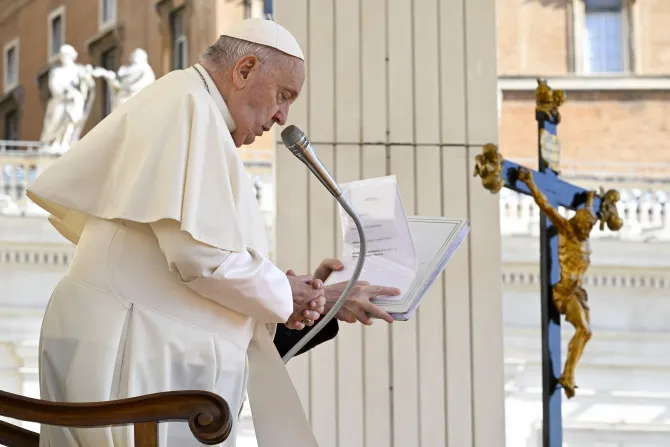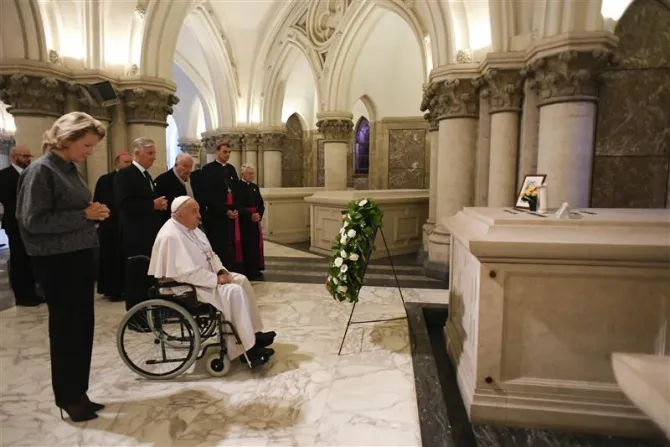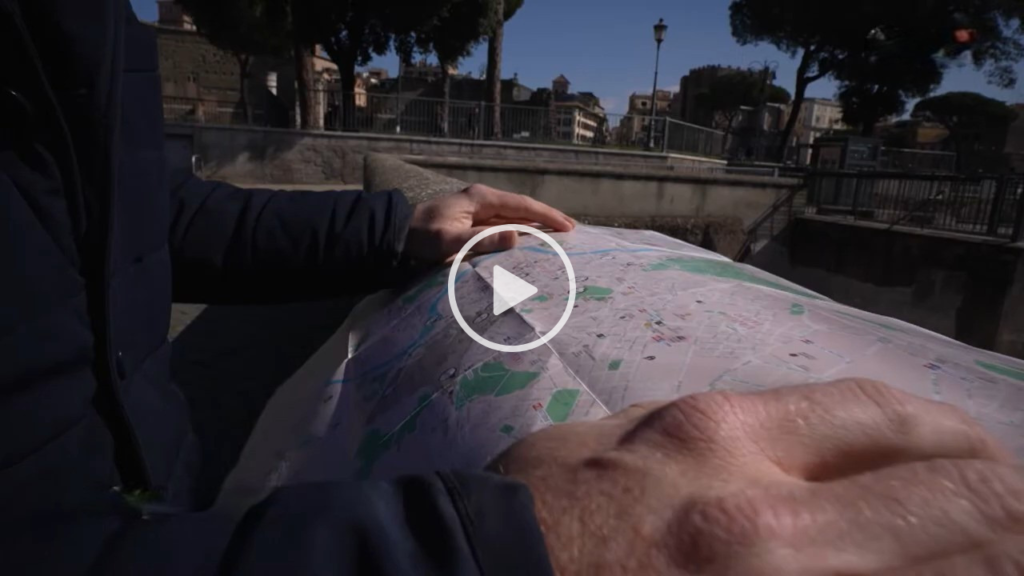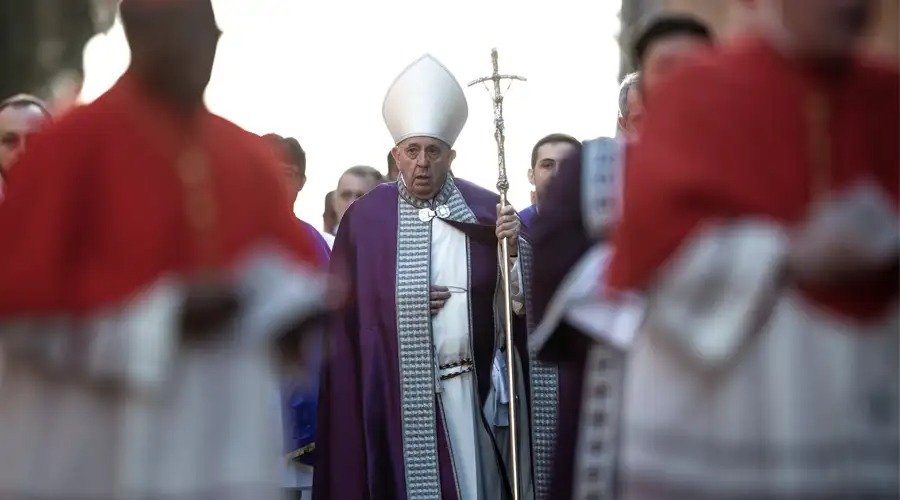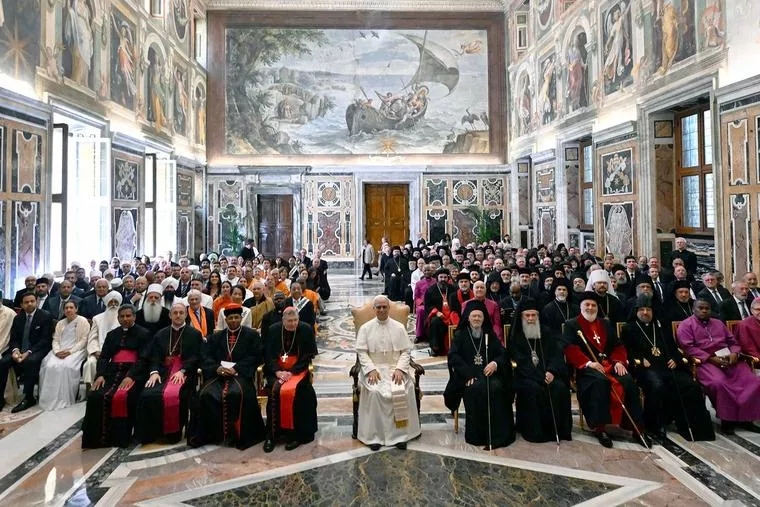Pope Francis on Wednesday presented the fourth and final cardinal virtue of temperance in his ongoing catechetical series of vices and virtues by noting that temperance itself is crucial for living a happy, balanced life.
“The gift of the temperate person is therefore balance, a quality as precious as it is rare. Indeed, everything in our world pushes to excess. Instead, temperance combines well with Gospel values such as smallness, discretion, modesty, meekness,” the pope said to the faithful gathered in St. Peter’s Square on Wednesday.
“In a world where many people boast about saying what they think, the temperate person instead prefers to think about what he says,” the pope said. “He does not make empty promises but makes commitments to the extent that he can fulfill them.”
The pope noted that “the temperate person succeeds in holding extremes together: He affirms absolute principles, asserts nonnegotiable values, but also knows how to understand people and shows empathy for them.”
The pope opened his reflection on temperance by looking to Aristotle’s “The Nicomachean Ethics,” an ethical treatise on the art of living. Francis noted that according to the Greek philosopher, man’s flourishing and the ability to live a happy life is realizable only by “the capacity for self-mastery, the art of not letting oneself be overcome by rebellious passions.”
This reflection on Artistolean ethics sets the foundation for an understanding of virtue present in the Church’s teaching. “Temperance is the moral virtue that moderates the attraction of pleasures and provides balance in the use of created goods,” the pope said, quoting from the Catechism of the Catholic Church.
For the pope, temperance, as expressed in ancient thought and in the Church, can be summarized as “the virtue of the right measure,” a point he made by contrasting it with those who are “moved by impulse or exuberance,” which makes them “ultimately unreliable.”
Francis explained that being temperate does not always require one to be “peaceful” or with a “smiling face.” Instead, in certain situations, “it is necessary to be indignant, but always in the right way.”
“A word of rebuke is at times healthier than a sour, rancorous silence. The temperate person knows that nothing is more uncomfortable than correcting another person, but he also knows that it is necessary; otherwise, one offers free reign to evil,” the pope observed.
Following the blessing at the end of the general audience, Pope Francis renewed his appeal for peace in Ukraine and in Gaza, imploring that “prisoners of war” and the “tortured” be freed.
“The torture of prisoners is a very bad thing; it is not humane,” the pope said. “Let us think of the many tortures that harm the dignity of the person and of the many tortured people.”
This article was originally published on Catholic News Agency.

